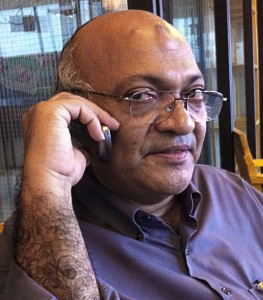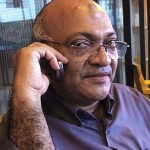Archive for the ‘Chaiwat Satha-Anand’ Category
Glenn D. Paige 1929-2017 – Pioneer of studies of nonkilling and peace
By Chaiwat Satha-Anand,
TFF Associate
At the 16th International Peace Research Association (IPRA) conference held in Brisbane, Australia in 1996 under the guidance of Ralph Summy with the theme” Creating Nonviolent Future”, Glenn D.Paige began his keynote address titled: “To Leap Beyond Yet Nearer Bring: from war to peace to nonviolence to nonkilling” by recounting another IPRA meeting held in Yokohama, in 1980.
At that meeting, a question was raised as to whether it would be possible for IPRA to take up the subject of “nonviolence”.
A distinguished European researcher responded in the negative saying that nonviolence “would discredit peace research”.
Six years later in 1986 at the IPRA conference held in Sussex, Theodore Herman convened what I believe to be the first IPRA nonviolence commission. Later in 1988 at the IPRA meeting held in Rio de Janeiro, Herman asked Paige to help convene the next nonviolence commission. Paige became the convenor of the nonviolence commission in the 1990 IPRA conference held in Groningen, Netherlands. [Papers from this conference were published in Gandhi Marg Vol.14 No.1 (April-June 1992)]
I attended the first IPRA conference in Rio de Janeiro in 1988. Glenn Paige was my teacher and mentor. Read the rest of this entry »
“Je ne suis pas Charlie.”
By Chaiwat Satha-Anand*
The Paris march for unity on Sunday, January 11, 2015 attracted more than a million people and world leaders including Germany’s Merkel, Britain’s Cameron, Turkey’s Davutoglu, Israel’s Netanyahu, and Palestine’s Abbas, among others. This extraordinary action by leaders and citizens is in response to perhaps the bloodiest week in the last half of a century in France with 17 dead.
It began with the killing of 12 people at a previously little known satirical magazine “Charlie Hebdo.” French President Francois Hollande warned that the threats facing France is not over even after the three perpetrators were dead.
The threat is real, however, not only because of information gathered by various intelligence agencies, but also because the violence and what has followed indicates a rift in the way Europe, and in fact the world, is moving in the context of fierce contestation of different ethics/values people are willing to die and for some – to kill for.
This article is an attempt to argue that the motto “Je suis Charlie”, while commendable in terms of solidarity with victims of senseless violence, transform the killing into politics of identity with potentials for further deadly conflict in the present context if certain existing signs are properly understood.
Signs
Arguably in response to the killing in Paris, there are reports of Muslims becoming targets of more frequent attacks: women’s veils have been pulled at, pork thrown at mosques Read the rest of this entry »
On non-violence in Thailand now
By Chaiwat Satha-Anand
TFF Associate Chaiwat Satha-Anand writes warning words to the protesters’ leader about the use and misuse of non-violence in this situation.
For your information, here a link to Suthep Thaugsuban, former deputy PM of Thailand, who is the recipient of professor Anand’s open letter
– Jan Oberg
Death of a child and the promises of peace dialogue
By Chaiwat Satha-Anand
On a hot summer afternoon, nothing is better than an ice-cream. When you are nine, the summer ice-cream your mom bought for you when she took you to a fair or something like that attained beautiful meaning.
Nisofian Nisani was in front of the ice-cream shop on Suwanmongkol Road in downtown Pattani when the 5 kg bomb exploded and took away his young life back to the Mercy of God on March 21, 2013 at 1.30 p.m. Fourteen others including his mother were also wounded in the violence that has claimed more than 5,000 lives and physically wounded more than 10,000 people in the past 9 years in southern Thailand, marking this deadly conflict as one of the most mysteriously ferocious in the world today.
The death of this boy at this time assumes special significance since this was the first time an attack on civilians has occurred after the signing of the “General Consensus on Peace Dialogue Process” in Kuala Lumpur Read the rest of this entry »
Understanding the global threat against sacred spaces
Chaiwat Satha-Anand, TFF Associate
Chairperson, Strategic Nonviolence Commisssion, Thailand Research Fund
Senior Research Fellow, TODA Institute of Global Peace and Policy Research
On August 6, 2012, the neo-Nazi Wade Michael Page walked into the gurudwara (Sikh temple) of Wisconsin in Oak Creek and murdered 6 people including the temple president. He was killed by the police in the incident.
While the Sikhs in the US had suffered from discrimination since they started coming to the United States in the early 20th century: they were driven out of Bellingham, Washington, in 1907; and out of St. John, Oregon in 1910, this most recent Oak Creek killing sparked global outcries from Washington DC to New Delhi. In India, members of Sikh communities staged protest demonstrations in several cities including New Delhi and Jammu, Kashmir.
There are many ways to understand this abominable incident. Read the rest of this entry »

